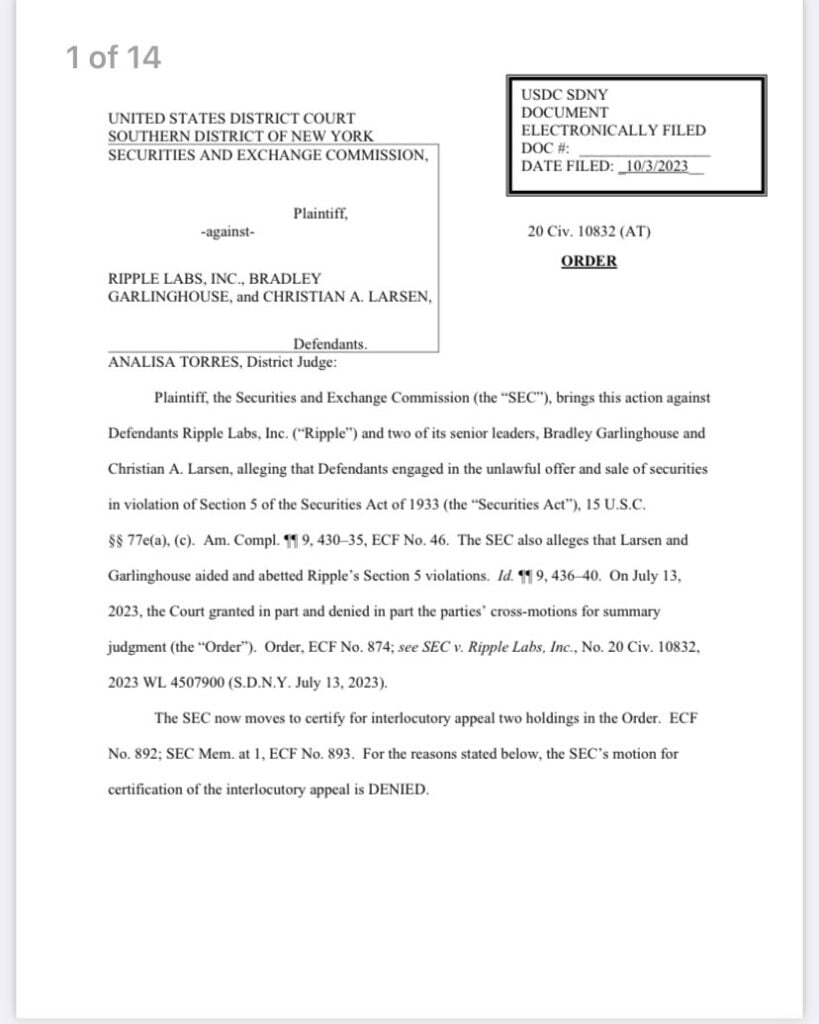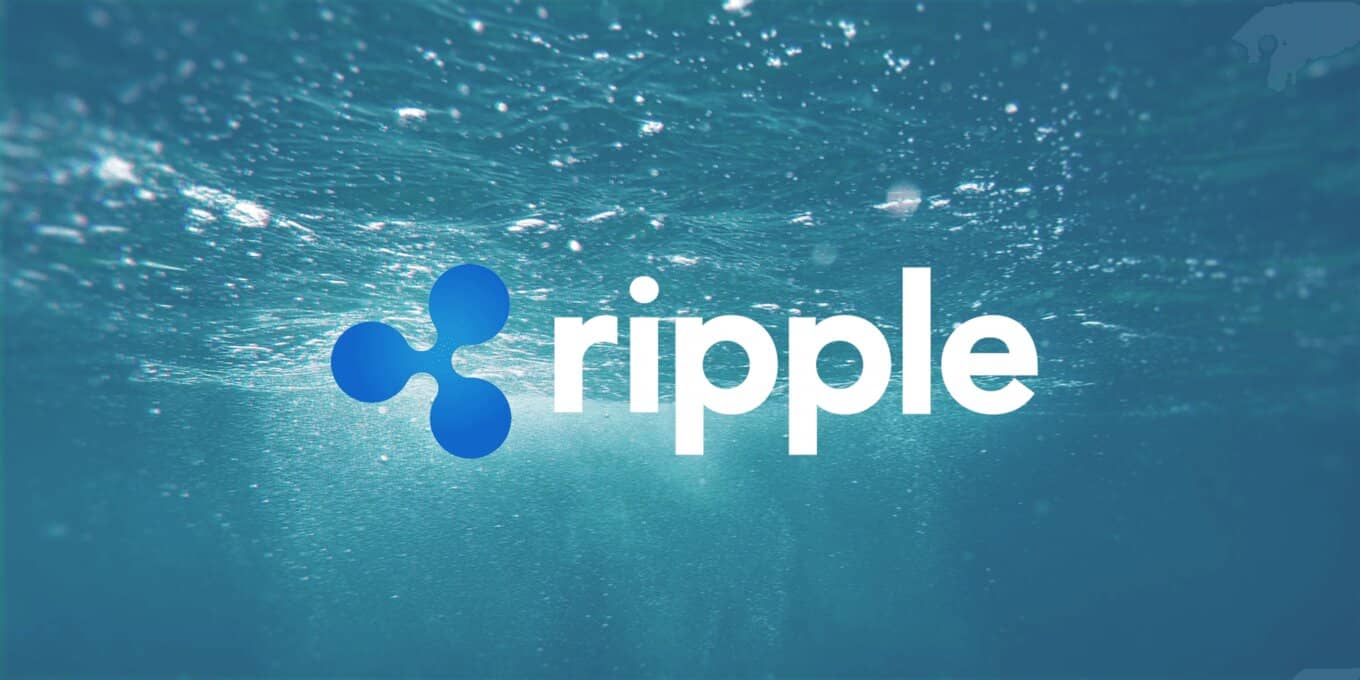XRP rallied about 5% following the decision.
SEC’s Motion to Appeal Loss in Ripple Case Denied. The U.S. Securities and Exchange Commission (SEC) has been denied permission by a federal judge to appeal its loss against Ripple, the cryptocurrency company associated with the XRP token. Following the news, XRP’s price experienced a 5% rally. District Judge Analisa Torres issued a brief ruling on Tuesday, stating that the SEC had failed to meet the legal requirements to demonstrate that there were significant grounds for differences of opinion or that there were controlling questions of law.


The SEC still has a chance to resolve other issues in a trial set for April 2024, even though the decision may be appealed. The judge had previously ruled in July that while Ripple violated federal securities laws in selling XRP to institutional investors directly, it had not done so by making XRP available to retail customers through programmatic sales to exchanges. That decision cast doubt on how strongly securities regulators would be able to police crypto.
After July’s ruling, the SEC announced that it would file an interlocutory appeal and move to stay any further decision-making as it bid for an appeal court review of Judge Torres’ ruling. Spokespeople for the SEC and Ripple did not immediately return requests for comment.
Ripple and the SEC
The problem between the SEC and Ripple stems from the SEC’s allegation that Ripple and its executives illegally sold XRP as unregistered securities. The SEC filed a lawsuit against Ripple and its CEO, Brad Garlinghouse, alleging they raised more than $1.3B through an unregistered securities offering violating federal securities laws. They also alleged that Ripple’s ongoing sales of XRP were part of an unregistered securities offering.
On the other hand, Ripple denied the allegations and claimed that XRP is not a security but a cryptocurrency like Bitcoin and Ethereum. Ripple argued that XRP is used as a medium of exchange and is not an investment contract, which is the hallmark of security.
The case has attracted significant attention in the crypto industry, with many observers seeing it as a test case for how the SEC will regulate cryptocurrencies. The case’s outcome could have far-reaching implications for the crypto industry, influencing how other cryptocurrencies are classified and regulated.
In May 2021, the judge agreed to allow Ripple to depose former SEC Director of Corporate Finance William Hinman, who had previously stated that Ethereum was not a security. Ripple argued that Hinman’s deposition was crucial to its defense, as it would show that the SEC had a double standard regarding cryptocurrencies.
Federal Securities Violation
In July 2021, the judge ruled that while Ripple had violated federal securities laws in selling XRP to institutional buyers directly, it had not done so by making XRP available to retail customers through programmatic sales to exchanges. The ruling cast doubt on how strongly securities regulators would be able to police crypto.
The SEC announced that it would file an interlocutory appeal and move to avoid further decision-making as it bid for an appeal court review of the judge’s ruling. However, in September 2021, the SEC’s motion to appeal was denied, giving Ripple a significant victory in the ongoing legal battle. The case is set to go to trial in April 2024, but the decision may be appealed.
Ripple use cases
Ripple’s XRP token is designed to facilitate cross-border payments and has several use cases. Here are some of the most significant ones:
1. Cross-border payments: Ripple’s primary use case is to allow for fast and cheap cross-border payments. The traditional cross-border payment process involves multiple intermediaries, which can take days to complete and is often expensive. Ripple’s technology aims to eliminate these intermediaries and reduce the time and cost of cross-border payments.
2. Remittances: Ripple has partnered with several companies to enable fast, low-cost remittances. Users can send money to other countries in seconds without intermediaries.
3. Liquidity: XRP can also be a bridge currency to provide liquidity between different fiat currencies, allowing faster and more efficient transactions, as users do not need to convert their money to another currency before making a payment.
4. Micropayments: People can use XRP for small transactions, such as paying for content, services, or products online. The low fees and fast processing times make XRP an attractive micropayment option.
5. Decentralized Finance (DeFi): You can use XRP in various DeFi applications, such as lending, borrowing, and trading. Ripple has also launched its own DeFi platform, called XRP Ledger (XRPL), which enables users to create and trade tokens on the XRP Ledger.
Overall, Ripple’s technology and XRP token have several use cases that can help users in various industries, especially cross-border payments and remittances.

